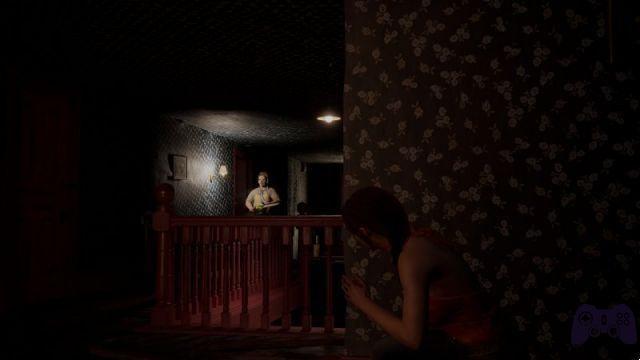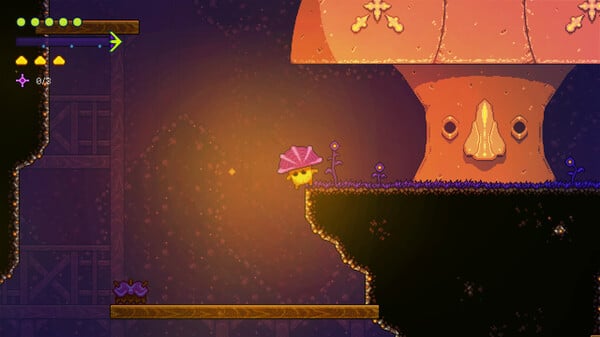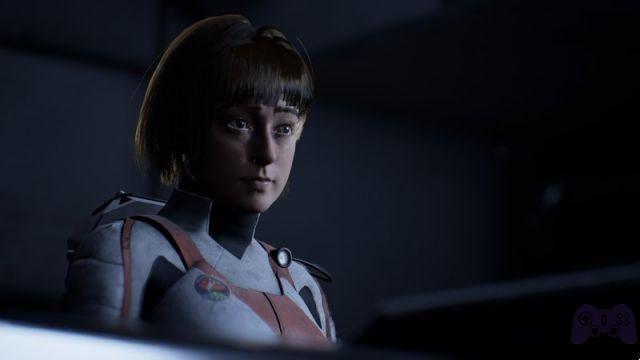System Shock (1994) was the result of great intuition. 3D became accepted by customs thanks to the success of DOOM and the general improvement of gaming PCs, and many studios were looking for a redefinition of the coordinates of the most beloved experiences, in order to exploit new technologies, in order to satisfy the needs Higher expectations of video game players. When Looking Glass Studios created System Shock for Origin Systems, the only models it could refer to were the two Ultima Underworlds, from which many members of the development team happened to come (particularly Dough Church and Warren Spector), so much so that , despite Despite the differences in scenario, we can speak without delay of a certain conceptual continuity between the projects.
The mix between exploration and first-person shooter, in which the player can roam freely around the Citadel space station without necessarily having to follow a pre-established path, was a success with critics, but not so much with the public, who did not pay tribute System Shock was a particular success (read: it sold little, but was pirated a lot), with cult game status that arrived essentially posthumously. Some of the elements that would characterize immersive Sims from Deus Ex and System Shock 2 onwards were not yet there, but the path was now clear to define a certain mix between role-playing game and first-person shooter. In short, we are talking about a title of great importance for the history of video games and the System Shock Remake Review We cannot fail to take it into account to try to get an idea of the entire operation.
Was there a need for a new version of System Shock?
The first question you should ask yourself when faced with any remake is whether it was really necessary. Contemporary audiences approach classic games very poorly, looking for modern standards and judging them in relation to them. Thus, it has become a fairly common practice to ask that experiences that are remembered with special affection be modernized, to the point that we do not have to make the effort to understand them in the historical moment in which they occurred. We want to please memories, but without giving up comfort. The problem in these cases is that some relationships have inevitably changed. As mentioned, when System Shock came out it represented the evolution of a formula with uncertain limits, while the remake hits the market when System Shock 2, Bioshock, Prey, Dishonored and many other immersive sims have already existed for years, so it is inevitable to interact with them.
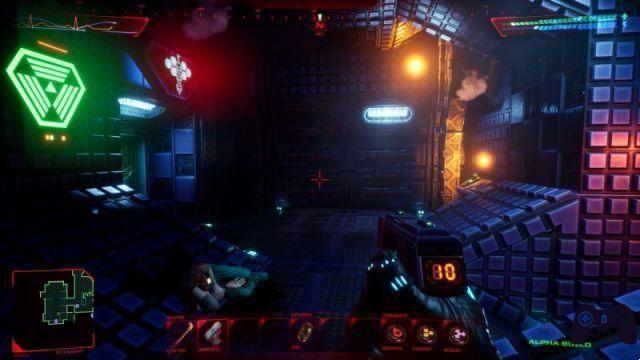
The first consideration we can make, therefore, is that while the 1994 System Shock was configured as an evolutionary experience, the 2023 System Shock is presented with a completely different attitude, imbued with great nostalgia and fearful of the prospect of proposing marriage to its potential actors a vision that does not overlap greatly with the original. In fact, it almost seems like a religious operation. So here we once again take on the role of the anonymous hacker who woke up after six months of an induced coma in the Citadel, where artificial intelligence SHODAN, the true protagonist of the series and the most interesting character, went completely out of control and began to develop a plan to exterminate humanity, experimenting on the station's occupants. Our objective is to stop it, visiting all the floors of the base. Easier said than done.
From 1994 to today
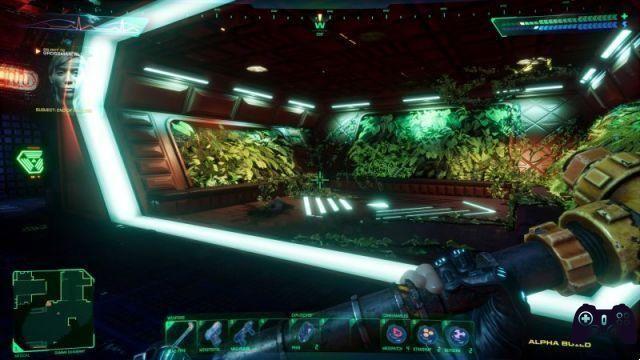
As soon as we take control of the protagonist we realize that the user experience is much more refined than before, with fewer clicks to perform certain actions, a more agile and completely reworked interface, despite allowing us to do exactly the same as the original (it must be said that System Shock: Enhanced Edition had already worked well from this point of view) and a much less complex entry into the game phase. Naturally, immediately striking are the completely new graphics, the result of years of efforts (literally) by Nightdive Studios, who worked very well on the atmospheres, taking maximum care of the lighting system and its effects on the stage. game. The result is that we find ourselves facing a space station much more oppressive than the one in 1994, despite having maintained the same labyrinthine nature and to a large extent also the same abstraction in terms of architectural composition, despite the work carried out also from this point. of sight. The attempt to increase its structural organicity is notable, but partial.
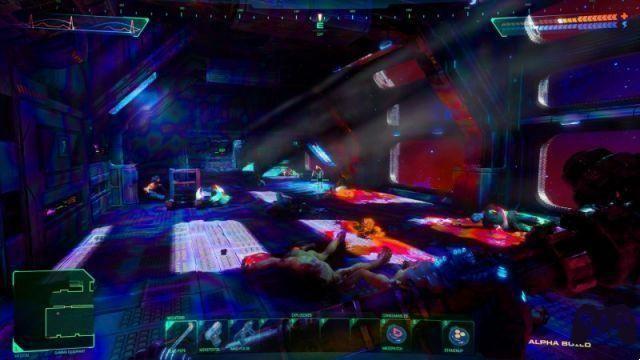
Even from a gameplay perspective, we immediately find ourselves at home, so to speak, as the game essentially requires us to examine the environments shelf by shelf, corner by corner in search of useful items, weapons, upgrades and recordings, the latter being the which represent privileged access to the game's history. Fortunately, we opted not to add cinematic sequences or other static narrative systems, which would have risked breaking the pace of the game. System Shock worked and, we can say, it works precisely because it makes us feel completely alone in a hostile environment, leaving the player himself with the burden of narrating the fight against SHODAN and his army of robots and mutant creatures.
game systems
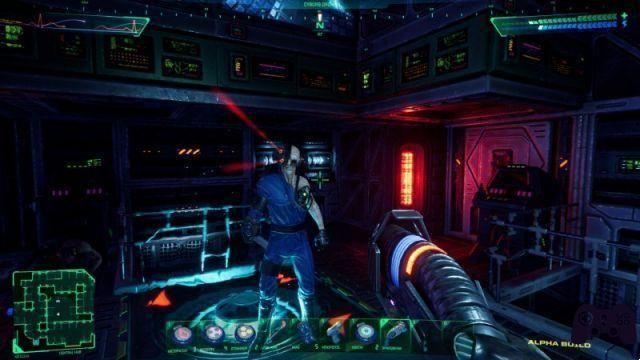
In System Shock the player spends most of his time doing two things: looking for objects, particularly access cards to closed areas and ammunition, managing them in the inventory, vaporizing those he considers less useful, keeping some weapons and throwing everything superfluous into the recycling. stations to earn valuable credits and fight. If we want it is exactly the combat system to remind us more than anything that we are facing a remake of a 1994 game and to show some malfunctions. In honor of the original, no alternative system for dealing with enemies has been included. So when you enter their range, you are inevitably attacked and all you have to do is hit them with the available weapons until they fall to the ground. So don't expect multiple approaches to Dishonored or Prey, because Nightdive Studios has chosen to respect the original title even in its now more problematic aspects. He did this to the point of having created a feedback system for successful hits reminiscent of the 1994 game, creating a rather alienating effect. In the original System Shock, the static nature of the gunshot response animations was normal and in a sense justified, as enemies did not linger even for a moment even when strafed, because they were 2D sprites moving in a world. 3D. . Also, as we said, there weren't many reference models and, inevitably, developers ended up turning to DOOM. Let's clarify: for its time it was a very advanced system. However, inevitably striking is the fact that in the new version of System Shock the hits produced almost no feedback, as if they were not absorbed by the enemies.
So whether you shoot a pistol or a ray gun, the effects will always be the same. Melee weapons by themselves do not produce feedback satisfactory, despite the fact that the animations of the shots predispose one to expect much more. For example, when hitting with the wrench, the blow is loaded with a very physical animation, also showing some effort on the part of the protagonist, but then it slides over the body of the enemy in question at the moment of execution, even in in case it hits the target. Probably, by inserting more marked feedback, it would have been necessary to remodulate the entire system, which largely follows the model of the original. If we want, this is often one of the problems with remakes, where the developers are too afraid of upsetting fans, to the point of making counterproductive decisions to avoid controversy. The problem, in this case, is that those who know System Shock from the remake will inevitably relate it to modern titles, ending up perceiving as a defect what is a decision probably dictated only by an exasperated form of respect. The same goes for the behavior of the enemies, which is very similar to that of the original title, to the point of being able to use the same tactics to defeat them. For example, you can position yourself so that you have a clear perspective of the target, but make sure that its line of fire ends at an obstacle. Simple, effective and decidedly old school. Maybe too much.
Scattered considerations
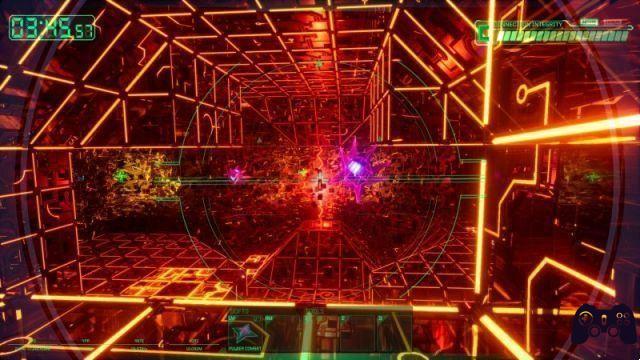
Otherwise, the remake of System Shock offers exactly the same situations as the original. So expect random puzzles with electrical connections to be recreated on boards divided into square tiles and expect travel in cyberspace to unlock access to certain areas and obtain data. The latter have been greatly revised from a technical and experience point of view, with special emphasis on trying to make them more dynamic and pleasant to experience. It's not that the cyberspace of the original was bad, it's just that today the wireframe graphics and certain blocky aesthetics of the enemies would no longer make much sense, so Nightdive wisely decided to opt for a more modern and colorful style, revising the entire section . The gameplay is still that of a first-person shooter with 360° movements in the Descent style, but decidedly faster and with more aggressive enemies, in which the objective is always to reach the end of the level alive, destroying all enemies and avoiding some. obstacles, like treacherous mines.
In general, it is difficult to define the new System Shock as a bad experience, also because it is built on a very solid foundation and of undoubted value. The only thing I really regret is that the developers have not shown more courage in modifying some systems, modernizing the game even more, instead of constantly seeking to celebrate the original. The result is a pleasant experience, certainly exciting, but that does not contribute anything to the topic of immersive simulators, which the first System Shock had begun to write about.
Conclusions
Tested version PC with Windows digital delivery Steam, epic games store, GoG, playstation store, Xbox Store Price 39,99 € Holygamerz.com 8.0 Readers (38) 7.9 your voteThe remake of System Shock makes sense in an industry where for now remaking games from the past seems to be the only possibility to avoid the complete aphasia of a certain way of conceiving video games. In many ways we can consider it a successful operation, net of some problems with the combat system and its meaning only in relation to the celebration of the original title. It's well made, a good dome for the nostalgic, but it doesn't add much to the overall story.
PRO
- Excellent graphic review.
- The game still works.
AGAINST
- Comments on the combat system.
- Very afraid of upsetting the fans.




